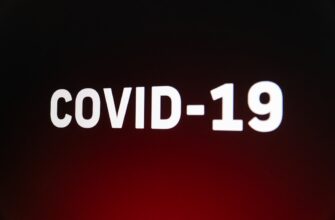## Introduction
In today’s digital age, cryptocurrencies like Bitcoin and Ethereum have sparked global financial revolutions – and profound religious questions. For Muslims worldwide, the central dilemma remains: Is cryptocurrency halal (permissible) or haram (forbidden) according to Islamic principles? Esteemed Islamic scholar Mufti Ismail Menk, renowned for his balanced interpretations, offers nuanced guidance on this modern financial frontier. This article explores Mufti Menk’s insights, core Islamic finance rules, and practical advice for navigating crypto investments responsibly.
## What Is Cryptocurrency? A Simple Explanation
Cryptocurrency is a digital or virtual currency secured by cryptography, operating on decentralized networks called blockchains. Unlike traditional money issued by governments:
– It has no physical form
– Transactions are recorded publicly on a ledger
– Supply is often capped (e.g., only 21 million Bitcoins)
– Values fluctuate based on market demand
## Islamic Finance Principles: The Foundation
To evaluate cryptocurrency, we must first understand Islam’s financial ethics:
1. **Prohibition of Riba (Interest)**: Earning or paying interest is strictly forbidden.
2. **Avoiding Gharar (Excessive Uncertainty)**: Transactions must be transparent with minimal ambiguity.
3. **Asset-Backed Value**: Traditional Islamic finance favors currencies/trades with intrinsic value (e.g., gold).
4. **Halal Usage**: Wealth must not support haram activities like gambling or fraud.
## Mufti Menk’s Stance on Cryptocurrency
Mufti Menk hasn’t issued a blanket fatwa declaring all cryptocurrency haram but emphasizes extreme caution. In his lectures, he highlights critical concerns:
### Key Concerns Raised by Mufti Menk
– **Volatility as Gambling (Maysir)**: Extreme price swings encourage speculative behavior akin to gambling.
– **Regulatory Void**: Lack of government backing increases fraud and scam risks.
– **Illicit Activities**: Potential use in money laundering or dark web transactions.
– **No Intrinsic Value**: Digital coins lack physical backing, conflicting with classical interpretations of “mal” (wealth).
Mufti Menk advises that while crypto isn’t inherently haram, its real-world application often violates Islamic principles. He stresses: “If you cannot ensure it’s free from haram elements, avoid it.”
## Guidelines for Muslims Considering Cryptocurrency
If exploring crypto investments, apply these Islamic safeguards inspired by Mufti Menk’s counsel:
1. **Prioritize Education**: Understand blockchain technology and specific coin mechanics.
2. **Reject Speculation**: Treat crypto as a long-term asset, not a get-rich-quick scheme.
3. **Verify Legitimacy**: Use only transparent, Sharia-compliant platforms avoiding interest (riba).
4. **Audit Usage**: Ensure coins aren’t facilitating haram industries (e.g., pornography, gambling).
5. **Risk Management**: Never invest essential funds (e.g., savings for Hajj or basic needs).
## FAQ: Cryptocurrency in Islam According to Mufti Menk
**Q1: Did Mufti Menk declare Bitcoin haram?**
A: No. He avoids absolute rulings but warns against its risks, comparing volatility to gambling. Individual responsibility is key.
**Q2: Is crypto mining halal?**
A: Potentially, if electricity is legally sourced, and mined coins support halal transactions. However, high energy costs and uncertainty may render it problematic.
**Q3: Can I pay Zakat with cryptocurrency?**
A: Scholars debate this. Some accept it if crypto qualifies as “mal” (wealth). Calculate Zakat based on market value and distribute it immediately to avoid value fluctuations.
**Q4: Are stablecoins like USDC halal?**
A: They reduce volatility but still face scrutiny. Ensure reserves are interest-free and audited. Mufti Menk’s general caution still applies.
**Q5: How do I find Sharia-compliant crypto projects?**
A: Seek coins with clear utility (e.g., facilitating halal trade), avoid interest-bearing features, and consult platforms like Islamic Finance Guru for certifications.
## Conclusion
Cryptocurrency’s permissibility in Islam remains a complex, evolving discussion. Mufti Menk’s guidance underscores vigilance against speculation, uncertainty, and unethical use. While not universally haram, most crypto activities today carry significant religious risks. Muslims should prioritize Islamic financial principles, conduct due diligence, and **seek personalized fatwas from qualified scholars** before investing. Remember: Wealth in Islam is a trust – how we acquire and use it defines our faith.








